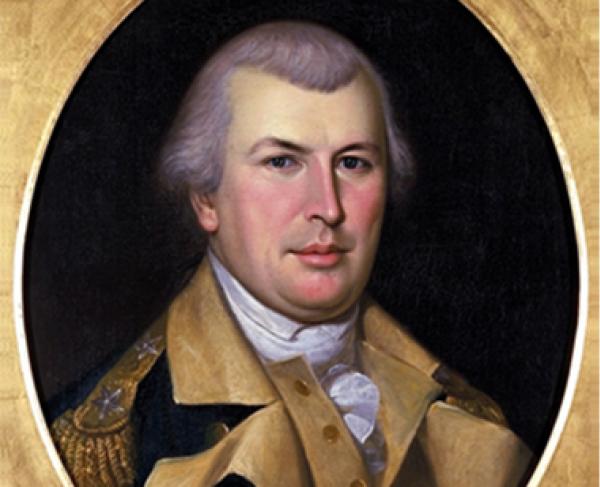"A veritable hydra of resistance."
Limping, asthmatic Patriot General Nathanael Greene
The Battle of Yorktown, fought September 28, 1781 – October 19, 1781, was the Patriot victory that pushed the British to throw in the towel, but 1781 was a year of decisive battles that led up to Yorktown. From a summary of Robert Tonsetic's 1781: The Decisive Year of the Revolutionary War:
The Treaty of Paris in 1783 formally ended the American Revolutionary War, but it was the pivotal campaigns and battles of 1781 that decided the final outcome. 1781 was one of those rare years in American history when the future of the nation hung by a thread, and only the fortitude, determination, and sacrifice of its leaders and citizenry ensured its survival.
By 1781, America had been at war with the world’s strongest empire for six years with no end in sight. British troops occupied key coastal cities, from New York to Savannah, and the Royal Navy prowled the waters off the American coast. The remaining Patriot forces hunkered down in the hinterland, making battle only at opportunities when British columns ventured near.
But after several harsh winters, and the failure of the nascent government to adequately supply the troops, the American army was fast approaching the breaking point.
The number of Continental soldiers had shrunk to less than 10,000, and the three-year enlistments of many of those remaining were about to expire.
Mutinies began to emerge in George Washington’s ranks, and it was only the arrival of French troops that provided a ray of hope for the American cause.
In a shift of strategy given the stalemate between New York and Philadelphia, the British began to prioritize the south. After shattering the American army under Horatio Gates at Camden, South Carolina, the British army under Lord Cornwallis appeared unstoppable, and was poised to regain the Carolinas, Georgia, and Virginia for the Crown.
However, when General Nathanael Greene arrived to take command of Patriot forces in the south, he was able to gradually turn the tables. By dividing his own forces, he forced the British to divide theirs, dissipating their juggernaut and forcing Cornwallis to confront a veritable hydra of resistance.
1781 was a year of battles, as the Patriot Morgan defeated the notorious Tarleton and his Loyal legion at Cowpens. Then Greene suffered defeat at Guilford Courthouse, only to rally his forces and continue to fight on, assisted by such luminaries as Francis Marion, the “Swamp Fox,” and “Light Horse Harry” Lee.
While luring Cornwallis north, Greene was able to gather new strength and launch a counterattack, until it was Cornwallis who felt compelled to seek succor in Virginia. He marched his main army to Yorktown on the Peninsula, upon which the French fleet, the British fleet, Greene, Washington, and the French army under Rochambeau all converged.
On October 19, 1781, Cornwallis surrendered his weary and bloodied army.
[...]
In this book, Robert Tonsetic provides a detailed analysis of the key battles and campaigns of 1781, supported by numerous eyewitness accounts from privates to generals in the American, French, and British armies. He also describes the diplomatic efforts underway in Europe during 1781, as well as the Continental Congress’s actions to resolve the immense financial, supply, and personnel problems involved in maintaining an effective fighting army in the field.
[...]
With its focus on the climactic year of the war, 1781 is a valuable addition to the literature on the American Revolution, providing readers with a clearer understanding of how America, just barely, with fortitude and courage, retrieved its independence in the face of great odds.
Here, Robert Tonsetic along with American radio show host John Batchelor picks up the story with Rochambeau's fateful meeting with Washington. If you're not very knowledgeable about the American Revolutionary War, listen and learn.
*******

3 comments:
I’ve recently been listening to the excellent Revolutions podcast which in has a series on the War of Independence and it is fascinating. (It’s worth starting from series 1 with the English Civil War to put it in context and then following with the French, Haitian and South American revolutions to put them context). There’s 17 episodes lasting approx 9 hours so he does it some justice.
This looks interesting. I've just looked up a "Revolutions podcast" and assume this is what you're referring to.
https://www.revolutionspodcast.com/
And yes, context is extremely important when trying to understand complex histories.
Yes, that's the one. I didn't include a link because so many spam filters are, understandably, on hair triggers nowadays.
Post a Comment